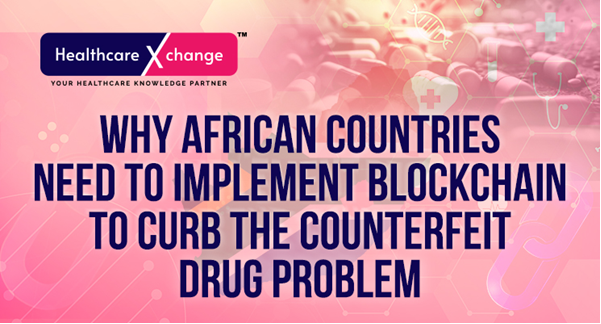
Why African Countries Need to Implement Blockchain to Curb the Counterfeit Drug Problem?
- IT Systems and Solutions
- October 15, 2024
Highlights
-
Fake medicines claim nearly half a million lives in Africa per year
-
Blockchain technology can improve tracking of the pharmaceutical supply chain and curb instances of manipulation
-
The technology needs a sound regulatory framework and stakeholder buy-in for best results
The prevalence of counterfeit plus substandard medicines has reached epidemic proportions globally. Regions with poor regulatory enforcement such as Africa have been hit hard by the illicit trade. According to a United Nations report, fake and poor-quality medicines claim the lives of nearly 500,000 people in sub-Saharan Africa every year. The UN Office on Drugs and Crime found that up to 50% of medicines circulating in the region, especially anti-malarial drugs along with antibiotics for pneumonia, could be potentially counterfeit.
As much as 605 tons of counterfeit healthcare products have been seized in West Africa between 2017-2021. Nigeria’s National Agency for Food and Drug Administration and Control confiscated NGN 500 million (USD 345,000) worth of fake medical supplies recently.
Blockchain in healthcare presents a viable solution:
Healthcare leaders and African countries are looking for measures to tackle bogus medications. Oluseyi Akindeinde, CEO of Nigerian IT company Hyperspace Technologies, suggests using blockchain into clinical medicine manufacture and delivery to minimise sabotage. Blockchain allows pharmaceutical businesses to monitor the whole supply chain, from raw material acquisition to distribution, resulting in a flawless system against vandalise efforts.
Non-fungible tokens (NFT) with in-built encryption can be used to generate unique serial IDs as part of a tamper-resistant network ledger. The records cannot be changed once it is on the blockchain providing an immutable or permanent history of transactions.
It ensures transparency in each phase of the production process to identify and eliminate vulnerable points with additional security features. For example, an added layer of security could be integrating NFTs in packaging of pharmaceutical goods. The measure restricts access to only authorised personnel who have the right keys or code to move ahead with the manufacturing process.
Such smart contracts mark a product batch with indelible tags preventing any nefarious intervention in the supply chain. The mechanism boosts the validity of underlying assets with certified ownership and authenticity.
Blockchain’s significance in restoring trust:
Blockchain’s value goes beyond making the healthcare supply chain secure. Substandard and fake medicines damage the reputation of legitimate companies together with erode consumers’ trust in genuine medical products. The state of affairs endangers public health during times of crisis such as the recent COVID-19 pandemic. The technology, if implemented correctly, can restore public confidence in healthcare initiatives, whether governmental, private or a collaboration between the two.
Challenges to implementation of blockchain in healthcare:
The major challenge to employ blockchain in healthcare is lack of a regulatory framework and limited coordination between industry stakeholders. A well synchronised procedure is needed to curb the incidence of fake medicine as the malpractice has evolved into a parallel industry with its subterranean supply chain.
What’s more concerning is the presence of workers from pharmaceutical firms, government bureaucrats, medical agency staff, law enforcement officials and terrorist groups in the illicit trade as per the UN report. It makes the argument for blockchain implementation even more compelling, to make it difficult to manipulate clinical drug manufacturing operations.




